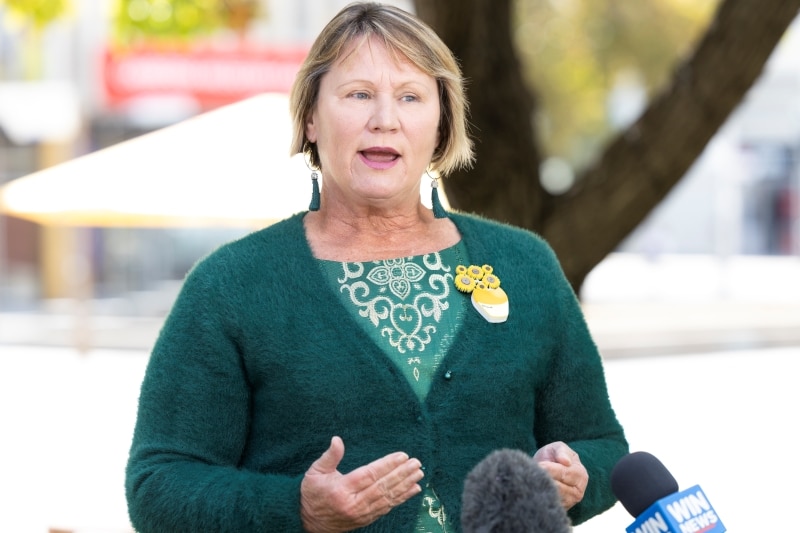Canberra may be the political heart of Australia, known for its population of public servants and influx of politicians, but unbeknown to many, the national capital is also home to a diverse and passionate farming community.
In an effort to build Canberra’s agricultural landscape, the ACT Government is preparing the Capital Food and Fibre Strategy, with an aim to launch farming in the ACT onto the national stage.
So, what is the future of farming in Canberra? Canberra Daily journalist, Abbey Halter, investigates.
Nicole Lawder MLA, Canberra Liberals Shadow Minister of Environment, Heritage and Water, hopes the upcoming Capital Food and Fibre Strategy will achieve the goals set out by the ACT Government.
However, Ms Lawder is aware of producers continuously fighting government regulations, zoning, and restrictions that create agricultural viability issues.
She believes the food industry is an area of substantial job growth and sustainability opportunities across Australia and must be protected in the ACT.
“I think rural land holds a lot of richness and diversity to our community. I live in Tuggeranong, and only minutes past Tuggeranong and you’re already in that rural land,” Ms Lawder said.
“You see the lambs jumping around and cows and crops and it’s very lovely.”
Agritourism
The idea of boosting agritourism in Canberra “sounds like a great idea” to Ms Lawder, and she is excited to see the economic possibilities it brings to our region.
She said the Canberra region has seen various degrees of agritourism success in wineries, for instance, but she highlights a few issues that she believes need to be addressed.
“Biosecurity is always an issue for people, you know; people coming onto your land and bringing diseases, weeds or anything like that with them,” Ms Lawder said.
“For small producers, it’s probably unlikely to work because the resources are actually in the production and it’s hard to spare resources to do the agritourism as well.”
But overall, Ms Lawder said it’s an interesting idea and is certainly worth exploring further.
Land security
“It’s difficult to maintain your production when you’re unsure of your future,” Ms Lawder said.
Land security for farmers is a long-standing issue in the ACT, and Ms Lawder expressed empathy for the hardships the Territory’s agriculture sector faces when trying to retain their land after 99-year leases expire.
While she “certainly gives the government the benefit of the doubt that they’re doing what they can, they’re doing their best”; for the farmers literally on the ground, she feels the bureaucracy they face is a “real challenge”.
“It’s really hard, and going through the processes of the lease negotiations or rezoning or whatever it is, is quite cumbersome for people. Even making smaller changes to leases can be quite difficult for some of our producers,” Ms Lawder said.
Additionally, the changing of the crown leases on some of Canberra’s agricultural land is diverging or diverting from the original plan for Canberra, she said.
Stewardship payments
Providing ACT farmers with stewardship payments for embracing sustainability initiatives on their farms is something Ms Lawder said she hasn’t seen details around.
But, she said she knows many farmers in the region are embracing sustainability on their land and it’s “obviously the way of the future”.
“Stakeholders that are innovating to look at their sustainable future and better, environmentally-friendly ways of doing business … it’s about how you treat weeds, how you fertilize, stock management, all of those things,” Ms Lawder said.
Sustainability and supply chains
Canberra receives 90 per cent of its fruits and vegetables from Sydney farms, transported to the ACT on trucks.
Ms Lawder said she believes most Canberrans would like to see the consumption of food that’s grown closer to them and also noted the additional benefit to sustainability by reducing food miles.
“There’s emissions, and all of those types of things to think about in terms of sustainability when you’re trucking in your food,” she said.
“When we have natural disasters, that can put some of that supply chain at risk. But, just generally, people like to know more about the region, the area where their food is coming from, and that it supports local jobs and local industries.
“For some of us, it’s about perhaps growing more of your own food. On the opposite side, we have such reliance on some of the commercial supermarket chains for fresh fruit and vegetables and that’s going to be quite a big cultural shift for people.”
What do you hope the future of farming and agriculture in Canberra will look like?
“We maintain what we have now in terms of the land available for farming, and I’d like to see more Canberrans involved in the production of their own fruits and vegetables,” Ms Lawder said.
“For example, so that we can reduce the reliance on bringing in food and other things, vegetables from other areas, but we need to protect our local markets and support it as much as possible.”
- Read more: The future of farming in Canberra: Tanbella Orchard
- Read more: The future of farming in Canberra: Fred McGrath Weber
- Read more: The future of farming in Canberra: Rebecca Vassarotti
Get all the latest Canberra news, sport, entertainment, lifestyle, competitions and more delivered straight to your inbox with the Canberra Daily Daily Newsletter. Sign up here.



